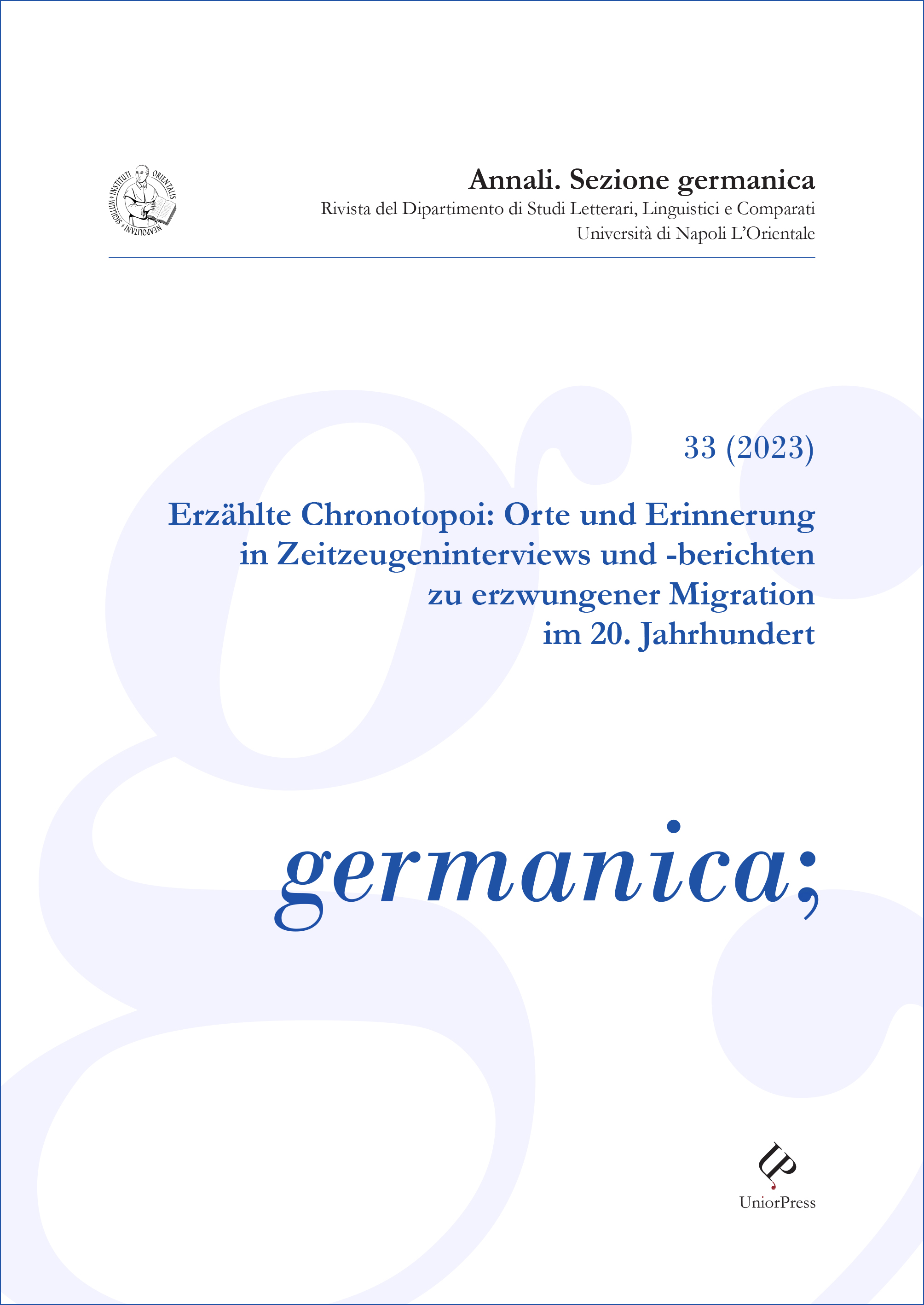No/A way back? Aliyah, migration and further chronotopic considerations about German-Jewish history
DOI:
https://doi.org/10.6093/germanica.v0i33.10736Keywords:
German Jews, exile, Mandatory Palestine/Israel, migration history, narratives of selfAbstract
Is there a specifically Jewish space-time relationship? Since Mikhail Bakhtin’s theorisation of the chronotopos, we know that the categories of time and space are deeply inscribed in narrative texts. A chronotopos in Bakhtin’s sense conveys a genuine narrative worldview. This has implications for our reflections on Jewish exile and migration, and, more specifically, for reflections on the Israelkorpus, which consists of biographical narrative interviews. Like other experiences of exile, the Jewish exile in the 1930s was an experience of displacement, yet it also meant a shift in the understanding of time and history. Migration to Mandatory Palestine/Israel meant, for Jews, a symbolic and mythical ‘return’ to another, mythical time. My point is hence to question overly linear notions of time and history with regard to Jewish migration history and to consider the multiplicity of layers of past that made the (German)Jewish experience of exile a temporal kaleidoscope.
Downloads
Published
How to Cite
Issue
Section
License
The authors who publish in this Journal accept the following conditions:
- The authors retain the rights to their work and give the magazine the right to first publish the work, simultaneously licensed under a Creative Commons License - Attribution which allows others to share the work indicating the intellectual authorship and the first publication in this magazine.
- Authors may adhere to other non-exclusive license agreements for the distribution of the version of the published work (eg deposit it in an institutional archive or publish it in a monograph), provided that the first publication took place in this magazine.
- Authors can disseminate their work online (e.g. in institutional repositories or on their website) before and during the submission process, as it can lead to productive exchanges and increase citations of the published work (See The Effect of Open Access).


